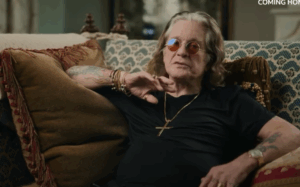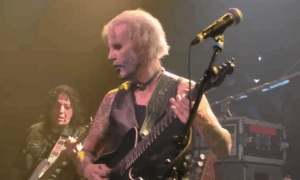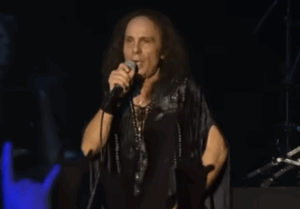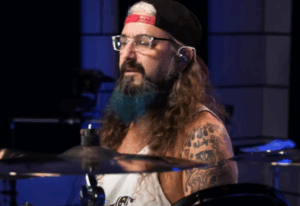10 “Cancelled” Musicians That Are Still Going
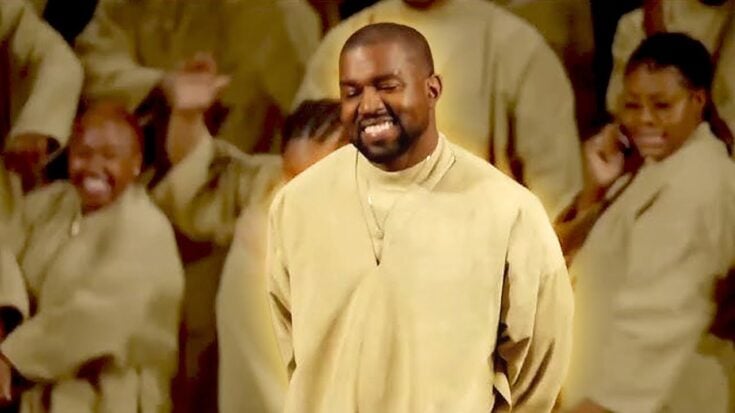
via Faith and Based / YouTube
Some careers crash at the first sign of controversy. Others, somehow, keep going. Whether through defiance, reinvention, or sheer stubborn momentum, certain musicians have weathered storms that would sink most artists. Their names have trended for all the wrong reasons, yet their tracks still stream and their albums still sell.
This isn’t about redemption arcs or comeback stories. These are musicians who kept going even as the world told them to stop. They’ve been criticized, boycotted, and in some cases, outright canceled—but they didn’t disappear. Their continued presence raises questions about accountability, audience loyalty, and where we draw the line.
What makes these artists so hard to cancel? Is it talent, timing, or just a fan base unwilling to let go? Whatever the case, they’re still here—touring, recording, and staying visible despite everything. Let’s take a closer look at ten musicians who didn’t vanish after the fallout.
6ix9ine
The man known as 6ix9ine, or Tekashi 6ix9ine, has made a name for himself with loud visuals and louder controversies. But what landed him in hot water went far beyond online beefs. In 2015, he pled guilty to using a child in a sexual performance, and just a few years later, he served time for his connection to the violent Nine Trey Gangsters. His court testimony against fellow gang members further fueled a wave of public backlash, labeling him a “snitch” in rap circles.
Despite the headlines, 6ix9ine’s music career didn’t grind to a halt. He’s continued to release new material and keep a dedicated—if polarizing—fan base entertained. His first post-prison single even broke YouTube records. But that spark has since dimmed, with each new album receiving less attention from both critics and the public.
Still, he presses on. 6ix9ine stays active on social media, often stirring controversy to keep his name trending. He may no longer be at the forefront of mainstream rap, but his ability to remain relevant in some corner of the internet shows that being cancelled doesn’t always mean being silent.
View this post on Instagram
Kodak Black
Kodak Black is no stranger to the justice system. In fact, legal trouble has been a consistent part of his public life. Over the years, the Florida rapper has racked up a lengthy rap sheet—charges including battery, drug trafficking, and weapons possession. One of the most serious accusations was a 2016 sexual assault case that ended in a plea deal and probation, not jail time.
Yet even as the headlines grew darker, Kodak kept making music. Albums, mixtapes, and features kept flowing, with seven full-length records dropping between 2017 and 2023. He’s had multiple stints behind bars, but his output rarely stopped—sometimes recording and releasing songs while still incarcerated.
The legal baggage hasn’t completely tanked his commercial success. He’s still scoring charting singles and collaborations, and his fans appear to stand by him. It’s a prime example of how some artists can walk through fire and keep their careers smoldering.
View this post on Instagram
Robin Thicke
Robin Thicke’s fall wasn’t about criminal charges—it was about public perception. Once riding high on the success of “Blurred Lines,” the singer found himself in hot water as critics called out the song’s lyrics for promoting a disturbing message about consent. The backlash came fast and loud, especially after his controversial 2013 MTV VMA performance with Miley Cyrus.
Things got worse when Emily Ratajkowski, who appeared in the song’s music video, accused Thicke of groping her during the shoot. Combined with a messy divorce and an album that publicly begged for reconciliation with his ex, his image took a serious nosedive. The public wasn’t laughing with Thicke anymore—it was cringing.
Yet despite all that, Thicke is still here. He reinvented himself as a judge on The Masked Singer and quietly returned to making music, releasing a full-length album in 2021. He may not be dominating charts like he once did, but his career has shifted into a lane that still keeps him visible.
View this post on Instagram
Ted Nugent
Ted Nugent’s controversies span decades and genres—of both music and behavior. The rock guitarist’s extreme political statements have frequently landed him in the crosshairs of public outrage. He’s made racist and inflammatory remarks about former President Barack Obama, once referring to him as a “subhuman mongrel” and questioning whether the Confederacy should’ve won the Civil War.
Nugent’s history with young women has also raised serious ethical questions. He’s boasted in interviews about relationships with underage girls and reportedly sought legal loopholes to pursue them. These allegations have lingered uncomfortably in the background of his public persona for years, though they’ve rarely been part of any major legal reckoning.
Still, the man keeps performing. He tours, he releases albums, and he speaks his mind with the same intensity he always has. Nugent’s fans may not be tuning in for a redemption arc, but they haven’t turned away either.
View this post on Instagram
DaBaby
DaBaby had the world at his feet in 2019. With a breakout single, a string of hit records, and high-profile collaborations, the rapper seemed unstoppable. That momentum came to a sudden halt in 2021, when he made unsolicited homophobic comments on stage at Rolling Loud Festival in Miami. The reaction was swift: dropped endorsements, canceled appearances, and radio silence where his songs used to be.
What surprised many was how fast and how far DaBaby fell. He issued multiple apologies—some sincere, others less so—but the damage was already done. The industry moved on, and fans didn’t rally to his defense the way they had for others. His later music releases have failed to make the same splash.
Still, he hasn’t disappeared. DaBaby continues to tour and put out music, even if the crowd has thinned. Whether he’ll ever reclaim the heights of his early career is unclear, but for now, he’s still out there, mic in hand.
View this post on Instagram
Ryan Adams
Ryan Adams was once the darling of indie and alt-country circles, celebrated for his prolific songwriting and genre-hopping albums. From heartfelt folk ballads to gritty rock anthems, Adams cultivated a reputation as a restless, boundary-pushing musician. His 2015 Taylor Swift cover album, 1989, was seen as both a novelty and a creative triumph, further solidifying his place in the critical spotlight.
That spotlight turned harsh in 2019 when multiple women—including artist Phoebe Bridgers—came forward accusing Adams of emotional abuse and sexual misconduct. The allegations painted a picture of manipulation and professional gatekeeping, leading to a swift and public fallout. In the era of #MeToo, his reputation took a sharp hit, and several collaborators distanced themselves from him.
Yet Adams has stayed remarkably active. Since the scandal broke, he’s self-released over a dozen albums, continuing to write, record, and tour. Though his mainstream coverage has dwindled, he’s maintained a devoted core fanbase willing to support him regardless of public perception.
View this post on Instagram
Travis Scott
Travis Scott rose to stardom with his unique blend of psychedelic production, trap rhythms, and high-energy live performances. His albums Birds in the Trap Sing McKnight and Astroworld turned him into one of hip hop’s most recognizable and influential figures. He wasn’t just a musician—he became a brand, collaborating with everyone from McDonald’s to Nike.
That brand took a massive blow after the tragic events at Astroworld Festival in 2021. As a crowd surge turned deadly, killing ten and injuring hundreds, many criticized Scott for failing to stop the show sooner. Videos circulated online showing fans pleading for help while the performance continued. Though Scott avoided criminal charges, public and corporate fallout followed swiftly.
Despite the horror and the backlash, Scott didn’t fade away. After a brief hiatus, he returned with the album Utopia and resumed touring, complete with elaborate stage designs. While the Astroworld tragedy will likely always shadow his legacy, Scott’s commercial appeal has proven surprisingly resilient.
View this post on Instagram
Marilyn Manson
Marilyn Manson built a career on controversy. In the ‘90s and early 2000s, he was the face of parental outrage, media panic, and religious protests. With his theatrical image and provocative lyrics, he relished the role of cultural villain. While some saw it as shock for shock’s sake, others viewed Manson as a satirical mirror to American excess and hypocrisy.
But in 2021, Manson faced allegations that weren’t part of any artistic performance. Actor Evan Rachel Wood and several other women accused him of emotional, physical, and sexual abuse, painting a disturbing picture of sustained manipulation and trauma. The music industry reacted quickly: labels dropped him, appearances were pulled, and lawsuits began to stack up.
And yet, Manson has pushed forward. He released an album in 2024 and launched a tour, albeit to more subdued fanfare. His continued presence on stage proves that, for some artists, even serious allegations don’t spell the end—at least not in the traditional sense.
View this post on Instagram
Chris Brown
Chris Brown’s early trajectory seemed unstoppable. With a debut that topped the charts and a slew of hits under his belt, he quickly became one of pop and R&B’s brightest young stars. His dance moves, vocal range, and magnetic stage presence drew comparisons to Michael Jackson. It seemed like nothing could slow him down.
That changed in 2009. News broke that Brown had assaulted his then-girlfriend Rihanna the night before the Grammy Awards. Photos of her injuries went public, and the reaction was swift and damning. Brown pled guilty and was sentenced to probation, community labor, and domestic violence counseling. His image was shattered, and many thought his career wouldn’t recover.
But Brown never left the music scene. While his mainstream appeal took a hit, he continued to release albums, rack up streaming numbers, and collaborate with major artists. Though his name remains divisive, his ability to stay in the game speaks volumes about the complicated nature of fame and forgiveness.
View this post on Instagram
Kanye West
Kanye West’s career has long been defined by chaos and genius in equal measure. A visionary producer and boundary-pushing rapper, West has made some of the most critically acclaimed albums of the 21st century. He’s also courted controversy at nearly every turn, from storming award stages to declaring his support for divisive political figures.
His most serious public downfall came in 2022, when he made a series of openly antisemitic comments on social media and in interviews. The fallout was immediate. Brands dropped him, streaming platforms removed playlists, and his net worth reportedly plummeted. For many, it felt like the final straw after years of erratic behavior and inflammatory statements.
But if anyone embodies the idea of being “uncancellable,” it’s Kanye. Since the backlash, he’s released new music, teased more projects, and maintained a loyal—if increasingly fractured—fanbase. His cultural influence may have shrunk, but his output hasn’t. Kanye’s story remains one of the most complex in modern music.
View this post on Instagram




